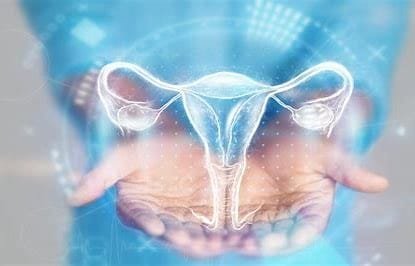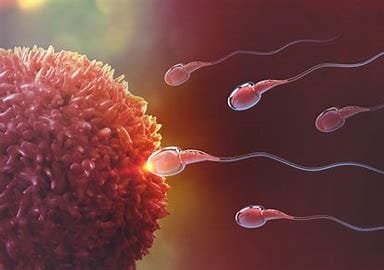Perhaps the least considered of the factors that might influence our lifespan is fertility. Everyone can list lifestyle influences such as diet, exercise, and genetics, but very few people realize that fertility may be one too. New studies indicate that there is an interesting association: those who have had more children or higher levels of fertility appear to live shorter lives than their less fertile counterparts.

Understanding the Fertility-Lifespan Link
High fertility rates usually coincide with high-frequency pregnancies, robust reproductive cycles, and a more extensive duration of childbearing years. While there is considerable variance in the research done both on animal populations and humans, this association has been established to be long-lasting. Scientists have taken particular interest in why such a correlation exists and what it reveals about human health and longevity.
One landmark study published in 2016 in Nature Communications made use of a large number of species and compared the data from those species; it found that females who produce larger broods of offspring have significantly shorter lifespans. More recent studies on humans have similarly supported this finding, showing that women who experience multiple pregnancies or high fertility tend to exhibit biological acceleration in aging. This theory is sometimes called the “cost of reproduction hypothesis”; it posits that energy channeled into reproductive activities and stress in raising offspring may drain one’s body of its longer-term vitality.
Physiological Explanation of Why High Fertility Could Affect Lifespan
There are several reasons, from a physiological viewpoint, why high fertility should influence lifespan. First and foremost, the body places quite a strain on itself during the process of pregnancy and childbearing, including hormonal swings, nutrient depletion, and other physical complications. The more pregnancies a woman experiences, the more cumulative stress her body undergoes. Changes in hormones, such as increased estrogen levels associated with pregnancy, may cause oxidative stress within cells, resulting in accelerated aging. Finally, postpartum recovery is extremely stressful on the body, and repeated pregnancies result in chronic inflammation that can have detrimental effects on heart health, immune function, and other vital systems.
High fertility may also have to do with how well a person can take care of his or her body and cells. For the last several decades, scientists have studied telomere length as a measure of cellular aging and robustness. Telomeres are the protective caps on the ends of DNA strands, which shorten with age and stress. Women who have had more children or have experienced repeated pregnancies have shorter telomeres, indicating that they may be aging more quickly at the cellular level. A 2018 study in Scientific Reports found that mothers of more children had markedly shortened telomeres, a clear sign of accelerated biological aging. Shorter telomeres have been associated over time with increased risks of age-related diseases, including heart disease, Alzheimer’s, and certain forms of cancer.
How energy allocation plays a role
That idea came from evolutionary biology and will enlighten this phenomenon of energy allocation. In reality, the body has a function that needs to decide whether the energy should be allocated either to maintenance, growth, reproduction, or survival of an organism. In most humans who have high fertility rates, a lot of the energy is devoted to this particular function, which probably siphons off their maintenance and survival functions.
Perhaps it’s a part of the evolutionary strategy. Species and even humans are generally moved to increase their genetic legacy to maximum levels in areas with a high rate of mortality for their offspring. Here, a larger number of offspring improves the chances that at least some will reach the stage of adulthood. With advanced medicine, child mortality rates are much lower nowadays. Hence, this evolution strategy is less helpful to people to live longer as a whole.

Beyond physiological impacts. high fertility affects psychological health, stress levels, and socioeconomic status—all related to life expectancy. For instance, the burden of raising many children tends to increase financial burdens, restrict access to personal health care, and elevate stress levels, all of which have been associated with lower lifespans. A larger family size also carries the emotional and psychological burden that breeds chronic stress. The effects of stress significantly contribute to health decline, particularly affecting cardiovascular health, sleep quality, and immune function—problems all directly related to longevity.
Females being fertile can have probably a few minutes in their lifetime engaging themselves with fitness-related activity like exercising and periodic check-ups at the health service, as well as some entertainment activities not so stressful enough, therefore, long-lasting and healthy living.
Influence from Sociocultural and Medical
There is also something one has to acknowledge about sociocultural factors and the connection of fertility lifespan. Indeed, members from particular cultural groups usually get greatly inspired or rather pressured into becoming highly fertile or reproducing as often as possible because most tend to take an economic perspective or rather a family consideration.
However, the new trends are delayed childbearing and a smaller family, which most modern societies now experience in line with greater lifespans and generally healthier outcomes. Access to reproductive health care and family planning as well as societal support makes this all possible in many cases for people who would like to make both their reproductive wishes, and their long-term health needs the most important goals.
Is High Fertility Always Inconsistent with Longer Life?
Although research hints that there is a significant positive correlation, it must also be said that high fecundity does not predetermine a short life. Lots of factors determine how many years a person will spend here on earth; lifestyle plays a vital role together with genetics and health providers’ access. Besides the complicated relationship between fertility rate and lifespan, every person in society has a unique expression resulting from health, style, and genetic makeup.
Conclusion: A Complex Evolving Picture

An interesting factor in human biology is the idea of fertility affecting lifespan. Yet, while reproduction is how species are reproduced, there is still a cost for this action. Understanding the link that exists between modern societies helps one make more informed choices about family planning so that reproductive desires can be set in the context of keeping a long-term check on health. All of this research opens new avenues through which to look at fertility, aging, and survival in an intricate dance, just how delicate the balance of the human body really is.
With this connection being further explored by scientists, people are given the capacity to think about how choices over fertility may affect health and longevity, bringing with it a more subtle approach to family planning and self-care in pursuit of a healthier, longer life.



